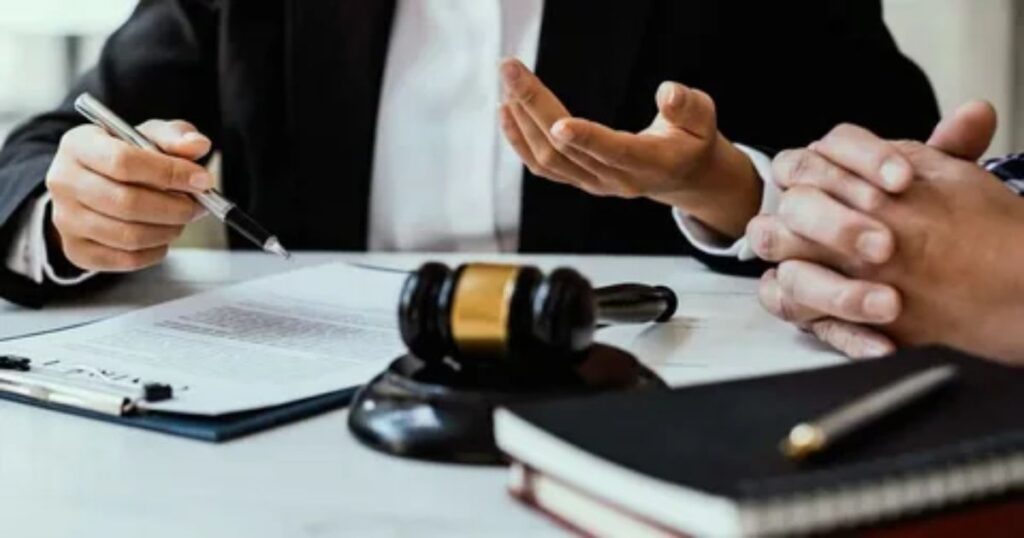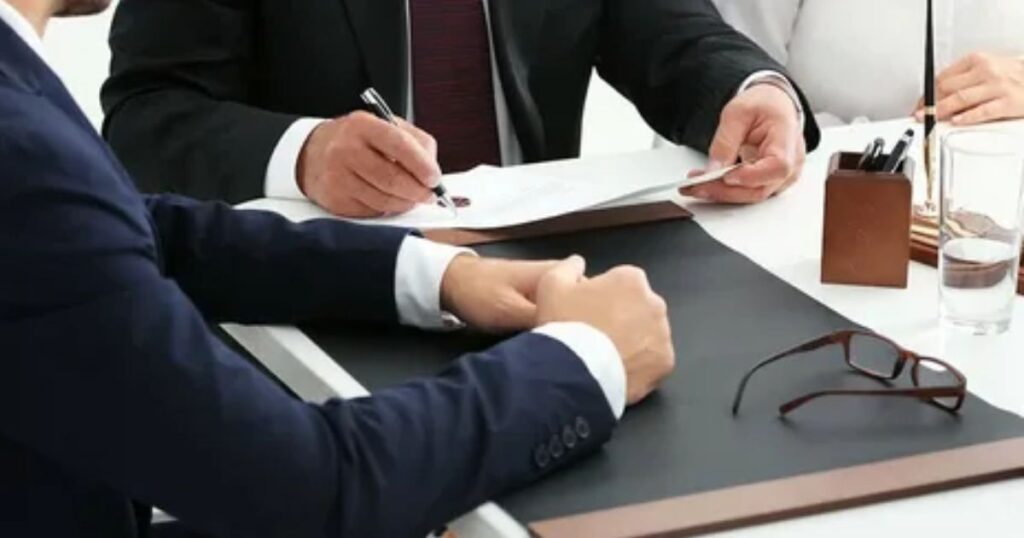When you first reach out to a personal injury lawyer the initial consultation is often free. This meeting serves as a critical opportunity for you to present your case and for the lawyer to determine if they can help you. It’s essential to bring all relevant documentation such as medical records, police reports insurance information related to the accident.
These documents provide a foundation for the lawyer to understand the specifics of your situation. Organizing these papers in advance can save time and ensure that you don’t forget any critical details. During the initial consultation be prepared to discuss the details of the accident in depth. Your lawyer will need to know precisely what happened where it happened and who was involved.
Effective communication with your personal injury lawyer involves more than just providing information. It’s also about asking the right questions to understand your case better and the legal process ahead. Inquire about the lawyer’s experience with similar cases their success rate and how they plan to approach your case. Understanding their strategy and expertise can give you confidence.
Preparing For The Meeting
Preparation is key when meeting with a personal injury lawyer. Make a list of questions you want to ask covering aspects such as the lawyer’s experience their approach to similar cases and the likely timeline and costs involved. This will help you stay focused during the consultation and ensure you gather all the information you need to make an informed decision.
Also think about your goals and priorities. Are you looking for a quick settlement or are you prepared to go to trial if necessary. Understanding your own objectives will help you communicate effectively with the lawyer and align their strategy with your expectations. During this meeting be honest and detailed about the incident including any pre-existing conditions or prior accidents that could affect your case. Remember the lawyer is on your side and withholding information can defeat you.
Communicating Your Story Effectively
When discussing your case with a personal injury lawyer, clarity is crucial. Start by providing a concise summary of the incident, including key details such as the date, location, and circumstances of the injury. Follow this with a chronological account of events, ensuring you cover all significant aspects. Avoid enhancing or omitting information as this can hinder the lawyer’s ability to evaluate your case accurately.
If you are unsure about certain details, it’s okay to admit it. The lawyer can help you gather the necessary information or clarify any uncertainties. Remember, the more precise and detailed you are, the better the lawyer can represent your interests. It’s also important to discuss any concerns or questions you have about your case no matter how minor they may seem.
Asking The Right Questions To Lawyer

Asking the right questions during your consultation can provide valuable insights into the lawyer’s capabilities and how they will handle your case. Inquire about their experience with cases similar to yours, their success rate, and their approach to litigation and settlement. Ask about their communication style and how often you can expect updates on your case.
It’s also important to discuss fees and costs upfront. Many personal injury lawyers work on a contingency fee basis, meaning they only get paid if you win your case. Ensure you understand the fee structure and any additional costs that may arise. Make sure to get all fee agreements in writing to avoid any surprises later on. This transparency will help you avoid surprises down the line.
Discussing The Legal Process
Understanding the legal process is essential for managing your expectations and navigating your personal injury claim effectively. During your consultation ask the lawyer to explain the steps involved in pursuing a personal injury case. This typically includes filing a claim gathering evidence negotiating with insurance companies and potentially going to trial. Discuss the potential timeline for each stage and any factors that could impact the duration of your case.
- The lawyer explains the steps in your case.
- It starts with filing a claim.
- The lawyer gathers all necessary evidence.
- It includes talking to witnesses and experts.
- The lawyer negotiates with the insurance company.
- It may end with a court trial if no settlement is reached.
Building A Strong Client-Lawyer Relationship
A strong trusting relationship with your personal injury lawyer is crucial for a successful outcome. Communication is key to building this relationship. Be open and honest about your concerns expectations, and any challenges you may face. Regular updates and clear communication from your lawyer will help build trust and keep you informed about the progress of your case.
It’s also important to be patient and understanding as personal injury cases can be complex and time-consuming. By fostering a collaborative and respectful relationship you can work together effectively to achieve the best possible outcome for your case. Consistency and honesty in your account will help your lawyer build a stronger case on your behalf. It’s also important to discuss the potential outcomes of your case, including best-case and worst-case scenarios.
Navigating Insurance Claims
Dealing with insurance companies can be one of the most challenging aspects of a personal injury case. Insurance adjusters often aim to minimize payouts, and navigating the claims process can be complex and frustrating. A personal injury lawyer can help you understand the tactics used by insurance companies and advise you on how to respond effectively.
During your consultation ask the lawyer about their experience dealing with insurance claims and their strategies for negotiating fair settlements. Discuss the documentation and evidence needed to support your claim and any potential pitfalls to avoid. By working closely with your lawyer, you can navigate the insurance claims process more effectively and increase your chances of a favorable outcome.
Judging The Lawyer’s Expertise And Track Record

Choosing the right personal injury lawyer is crucial for the success of your case. During your consultation, take the time to evaluate the lawyer’s expertise and track record. Ask about their experience handling cases similar to yours and their success rate in securing favorable outcomes for their clients. Request references or recommendations from past clients to gain insights into their reputation and client satisfaction.
- The lawyer’s expertise in personal injury cases can be seen through their years of experience.
- It is important to check if the lawyer specializes in personal injury law.
- The lawyer’s past track record shows how many cases they have won.
- It helps to read reviews from past clients to judge the lawyer’s performance.
- The lawyer’s success rate can indicate their ability to win cases.
- It is useful to ask for case examples to see the lawyer’s skills in action.
Discussing Compensation And Fees
Understanding the compensation, you may be entitled to and the costs associated with pursuing your claim is essential. During your consultation, ask the lawyer to explain the types of compensation you may be eligible for, such as medical expenses, lost wages, pain and suffering, and punitive damages. Discuss the factors that could influence the amount of compensation you receive and any potential challenges that may arise.
Also ask about the lawyer’s fee structure and any additional costs you may incur. Many personal injury lawyers work on a contingency fee basis, meaning they only get paid if you win your case. Ensure you understand the percentage they will take and any other expenses that may be deducted from your settlement. This transparency will help you make informed decisions and avoid unexpected financial surprises.
Exploring Settlement Options
Settlement negotiations are a critical aspect of many personal injury cases. During your consultation ask the lawyer about their approach to settlement discussions and their strategies for securing fair compensation. Discuss the pros and cons of settling out of court versus going to trial and the factors that may influence this decision.
Ask about the typical timeline for settlement negotiations and any potential obstacles that could arise. Understanding the settlement process and your lawyer’s approach will help you navigate this phase of your case more effectively and increase your chances of reaching a favorable resolution.
Seeking A Second Opinion
If you have any doubts or concerns after your initial consultation, consider seeking a second opinion from another personal injury lawyer. This can provide additional insights and perspectives on your case and help you make a more informed decision. During your second consultation present the same information and ask similar questions to compare the responses and advice you receive.
This will help you evaluate the strengths and weaknesses of each lawyer and select the one who is best suited to handle your case. Remember choosing the right lawyer is a critical decision and seeking a second opinion can help ensure you make the best choice for your needs. Being patient and allowing your lawyer to do their job you increase the likelihood of a favorable outcome.
Making Your Decision
After your consultations, take the time to review the information and advice you received. Consider the lawyer’s experience, track record, communication style, and approach to your case. Reflect on your own goals and priorities and how well the lawyer’s strategy aligns with them. Discuss your options with trusted family members or friends if you need additional input. Remember your lawyer is your advocate and is working in your best interest.
Once you have gathered all the necessary information, make your decision and move forward with confidence. Selecting the right personal injury lawyer is a crucial step in pursuing your claim and achieving a favorable outcome. Trust is the foundation of a successful attorney-client relationship. Be transparent and honest with your lawyer, and expect the same in return.
Building A Strong Case
Once you have chosen a personal injury lawyer work closely with them to build a strong case. Provide any additional information or documentation they may need and follow their advice on gathering evidence and preparing for negotiations or trial. Maintain open and regular communication to stay informed about the progress of your case and address any concerns or questions that arise.
- The personal injury lawyer helps gather evidence to support your claim.
- It includes medical records, witness statements, and accident reports.
- The lawyer knows how to navigate the legal system effectively.
- It ensures all paperwork is filed correctly and on time.
- The lawyer can negotiate with insurance companies on your behalf.
- It increases the chances of getting fair compensation for your injuries.
Navigating The Legal Journey Together

Navigating a personal injury case can be a challenging and complex journey, but with the right lawyer by your side, you can face the process with confidence and clarity. Trust in your lawyer’s expertise and follow their guidance to build a strong case and pursue the best possible outcome. By following these guidelines and maintaining open communication with your lawyer you can confidently navigate your personal injury case.
Remember communication and collaboration are key to a successful lawyer-client relationship. By working together effectively you can navigate the legal journey and achieve the justice and compensation you deserve. Building a strong trusting relationship will enable you to work together effectively and increase a successful outcome.
Frequently Asked Questions
What should I bring to my initial consultation with a personal injury lawyer?
Bring any relevant documents related to your case, such as medical records, police reports, photos of the accident scene and correspondence with insurance companies.
How do personal injury lawyers charge for their services?
Most personal injury lawyers work on a contingency fee basis, meaning they only get paid if you win your case. The fee is usually a percentage of the settlement or court award.
How long does it take to resolve a personal injury case?
The duration of a personal injury case varies depending on the complexity of the case. It can take anywhere from a few months to several years. Your lawyer can provide a more accurate timeline based on the specifics of your case.
What if the insurance company offers a settlement before I hire a lawyer?
It’s advisable to consult with a personal injury lawyer before accepting any settlement offers from insurance companies. Lawyers can help you assess whether the offer is fair and acceptable based on the level of your injuries and other damages.
Conclusion
Talking to a personal injury lawyer can be a daunting experience but it is a crucial step in pursuing justice and securing compensation for your injuries. By preparing thoroughly for your initial consultation asking the right questions and understanding the legal process you can build a strong case and navigate the journey with confidence. Building a strong trusting relationship will enable you to work together effectively and increase a successful outcome.
Choose a lawyer who aligns with your goals and communicates effectively and work collaboratively to achieve the best possible outcome. Remember the right lawyer can make a significant difference in the success of your case and help you move forward with the support and compensation you deserve. It’s advisable to consult with a personal injury lawyer before accepting any settlement offers from insurance companies.
